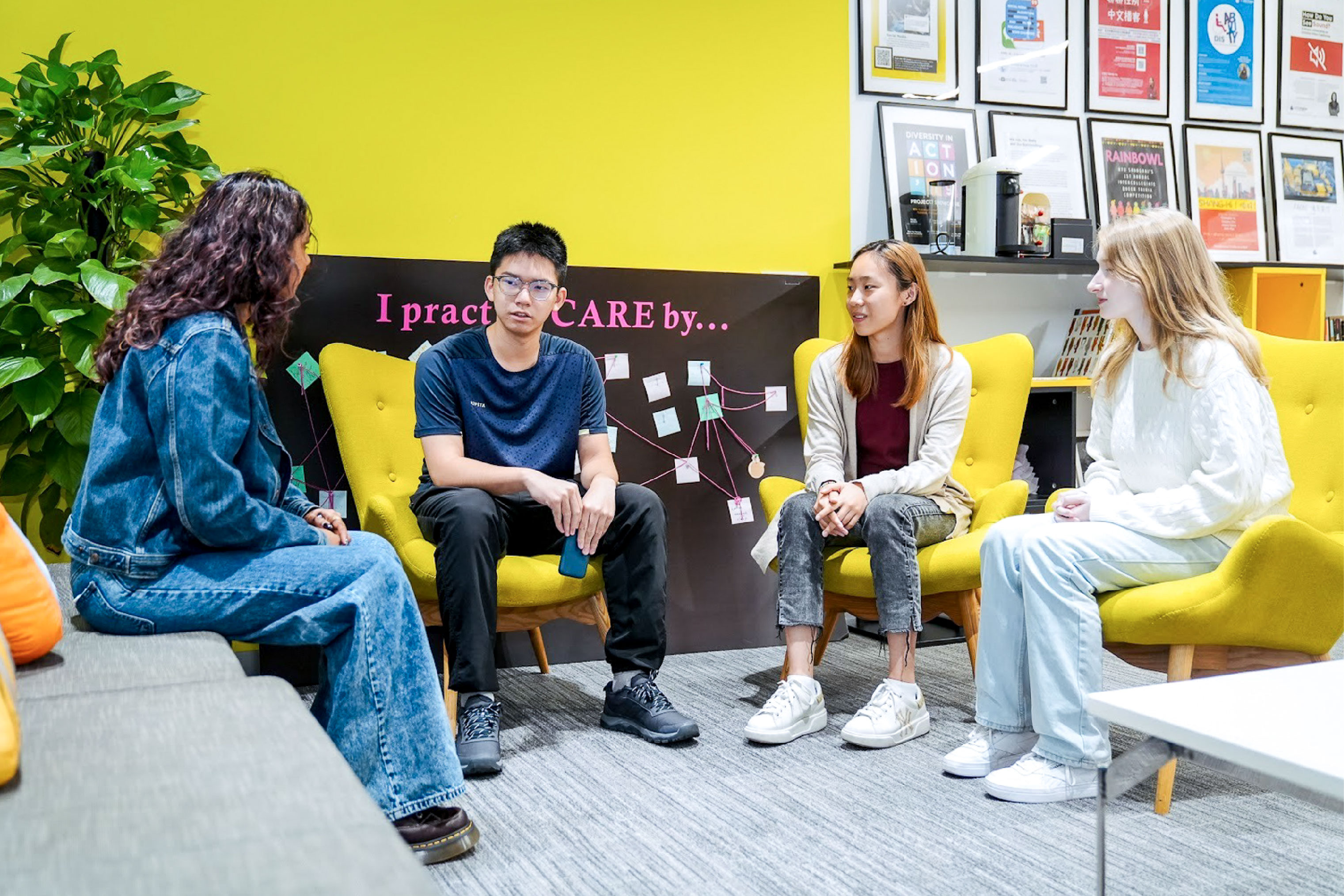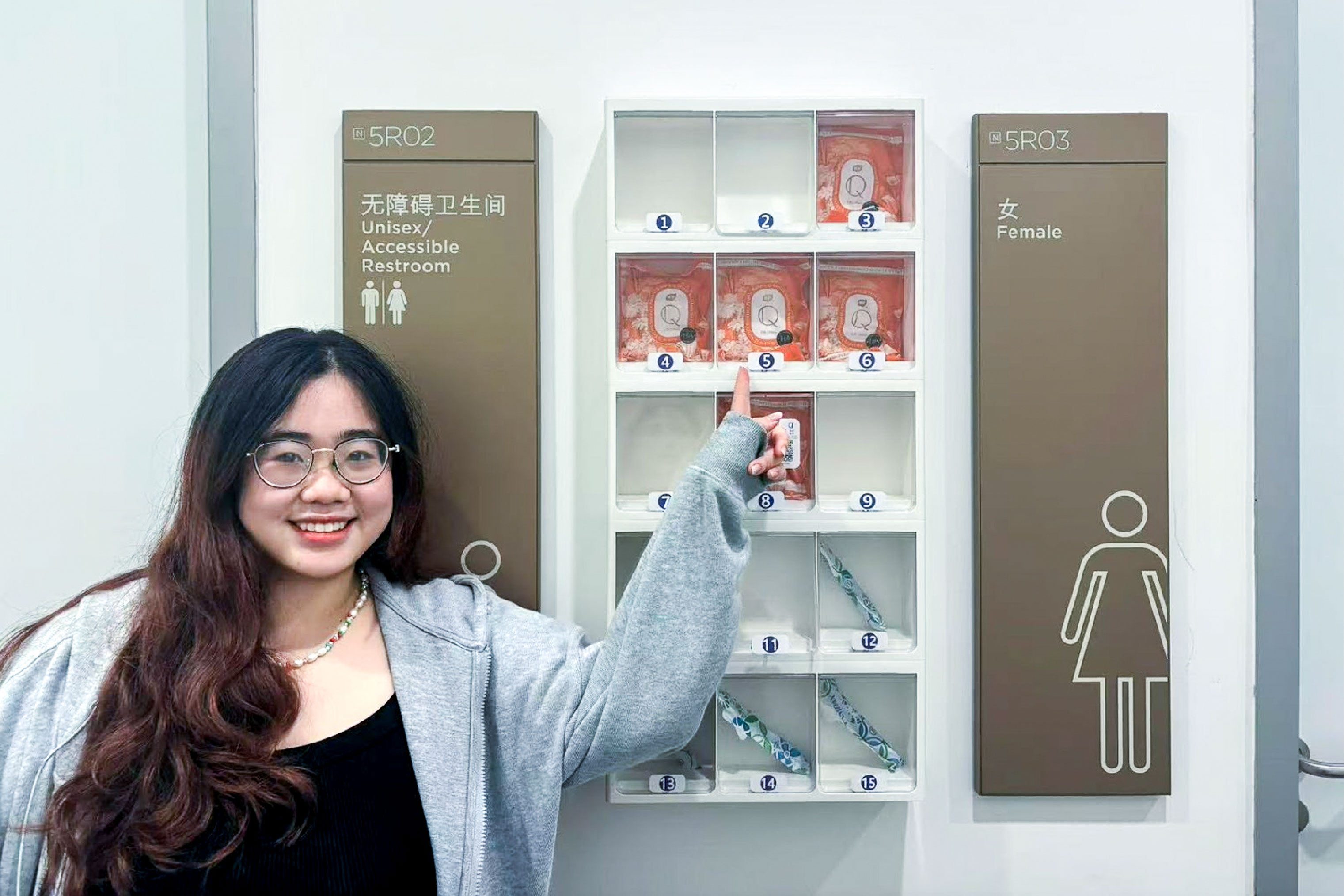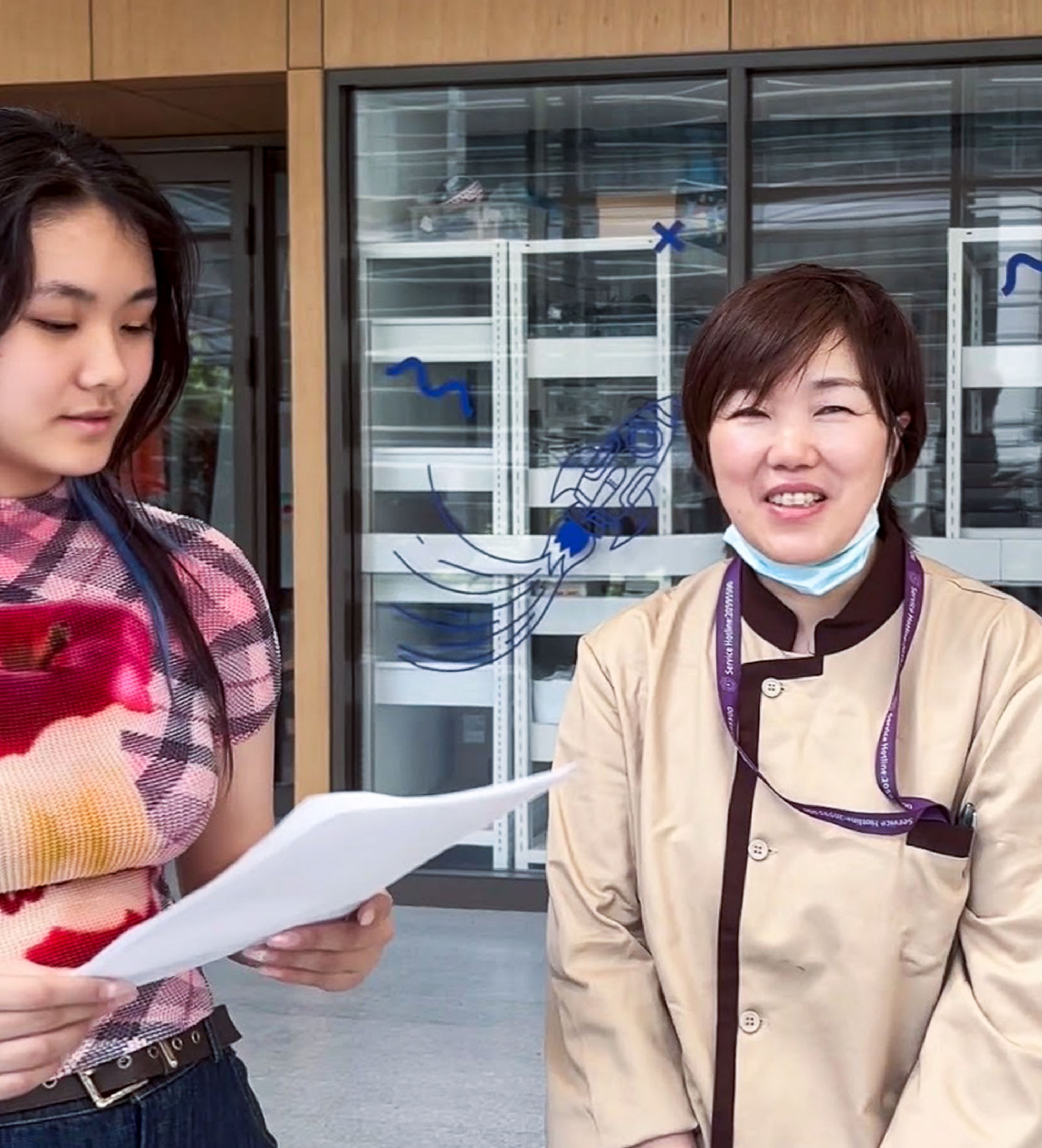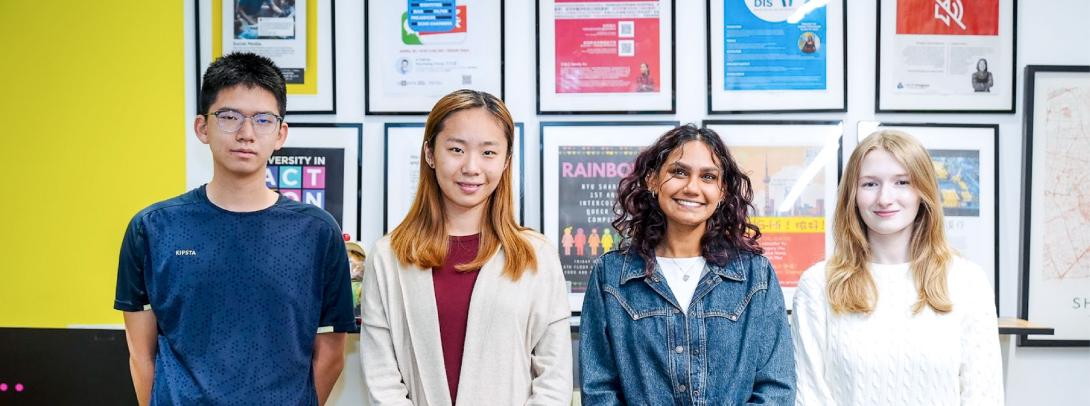What does it mean to be a leader? A group of NYU Shanghai students is learning to lead through connecting and creating impact. The LEAD Program run by the Center for Student Belonging, fosters diversity, awareness, and action on campus.
Students entering the program commit to a series of student-led dialogues on topics like identity, race, social class, gender, and disability, all within a safe space where differing perspectives are respected.
Honors Mathematics major Li Jiayan ’28 was drawn to the program and serves as a student facilitator for the dialogue series this semester.

“When you’re in dialogue, you don’t need to be afraid of saying something wrong,” she says. “Your opinion matters, and no one denies that.”
But dialogue is just the first stage of the program. Students are encouraged to continue on with several other stages, including action, engagement, and leadership.
In the Action and Engagement stages, students conduct research or creative projects during their summer or winter breaks and work together to organize campus events.
This year, LEAD program ambassadors will also help organize a year-long series of events called No Translation Needed (previously the annual Ally Week) which will launch later this semester with walks around Shanghai.
The flexibility of the LEAD program allows students to follow their interests. Business and Finance major Tang Yuechen ’28 says the LEAD program has helped her to explore social issues and make an impact on campus.

Yuechen spearheaded a project to install menstrual product vending machines around campus. Pads have always been available at the Student Health Center in the West Building but Yuechen’s project makes menstrual products available in multiple locations around campus for those who need it in an emergency. The vending machines also normalize conversations about periods and reduce stigma, she says.
“By putting a pad machine in public, we’re saying it’s okay—it’s part of life,” she says.
Yuechen says that the LEAD program dialogues helped her gain a sense of how culture can impact people’s day to day lives.
“Some topics—like sex—are more open in the US, but less accepted in Asia,” she reflects. “Having these discussions shows why sharing information matters.”
Business and Finance major Krystal Gong ’28 found inspiration on campus as well, creating a video project to highlight the contributions of facilities employees working on campus, including the cleaning staff whose quiet but consistent efforts keep campus running smoothly. Krystal says the LEAD Program taught her the power of empathy.

“This project taught me that listening, understanding, and amplifying others’ voices is also powerful leadership,” she says. “I’ve become more confident in connecting with different members of our campus community and more aware of the quiet ways people contribute to belonging and inclusion.”
These activities and initiatives help students take their first steps towards leadership. Students in the final stage of the LEAD program step fully into leadership roles, facilitating dialogues for the incoming participants.
LEAD’s flexible structure—dialogue first, then action, engagement, or leadership—ensures that students begin with reflection before taking active steps. Throughout the program inclusive dialogue, that first stage, remains at the core.
Jiayan, who is a facilitator this semester, says that the cycle of learning to reflect through dialogue, then taking action, and now facilitating dialogue for others is a continuous process of growth. “I grow from this program each semester—it records the growth of my perspective and horizon,” she says.
“It’s one thing to be surrounded by diversity—it’s another to actually start a dialogue, ” says Amelia Tuttle ’26, a senior Data Science major who this semester is a dialogue facilitator. “LEAD provides a space where disagreement isn’t scary—it’s where growth happens.”
Amelia says the program has helped her examine her assumptions. “You could be in the most diverse place in the world and still have blind spots,” she says. “Dialogue pushes you to question your own perspective and see things with more nuance.”
This year, LEAD participants will bring even more activities to the campus with the launch of No Translation Needed, a year-long program of activities on and off-campus.
Amelia is organizing a sign language class at a nearby cafe staffed by deaf and hard of hearing employees.
“It’s easy to forget about communities you don’t see every day,” she says. “LEAD reminds us to look closer and learn from people whose experiences differ from our own.”
Being part of the LEAD program is a transformative journey, say the participants, “It’s about discovering your values, collaborating with others, and learning how to make small but meaningful changes in your community,” says Krystal. “Anyone who joins will grow in both self-awareness and empathy.


